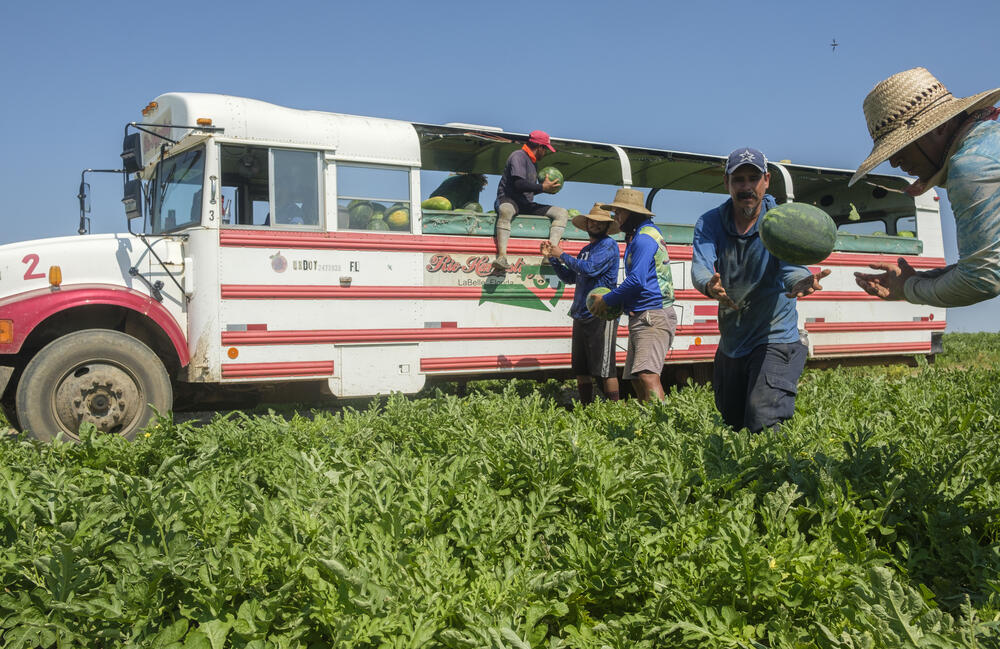Caption
Children and family members of migrant farm workers visited the State Capitol on March 21, 2025, to learn about the legislative process, and advocate for the farm worker communities several miles north and south of Atlanta. Agriculture is Georgia's most profitable industry.
Credit: Sofi Gratas/GPB News


